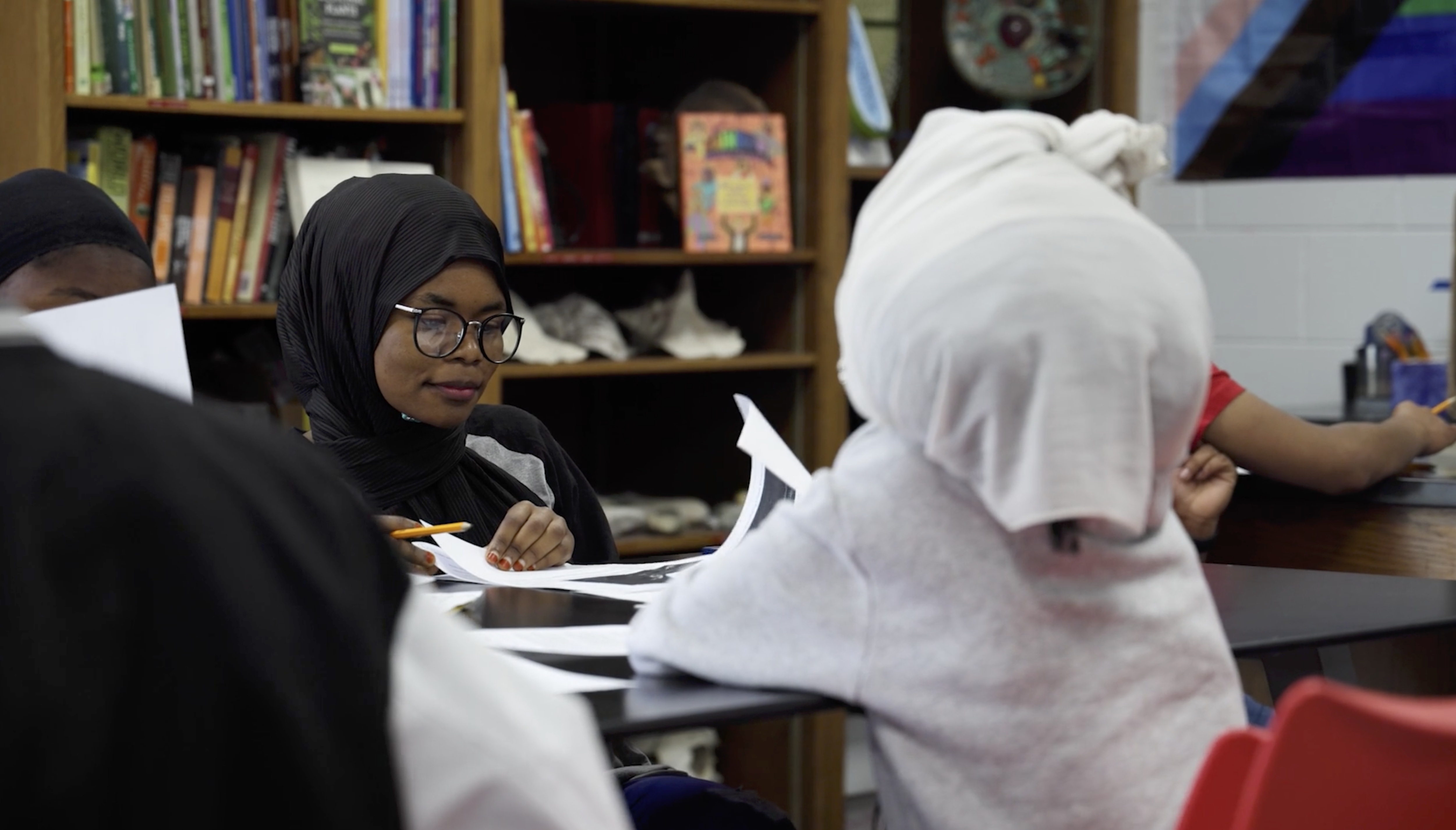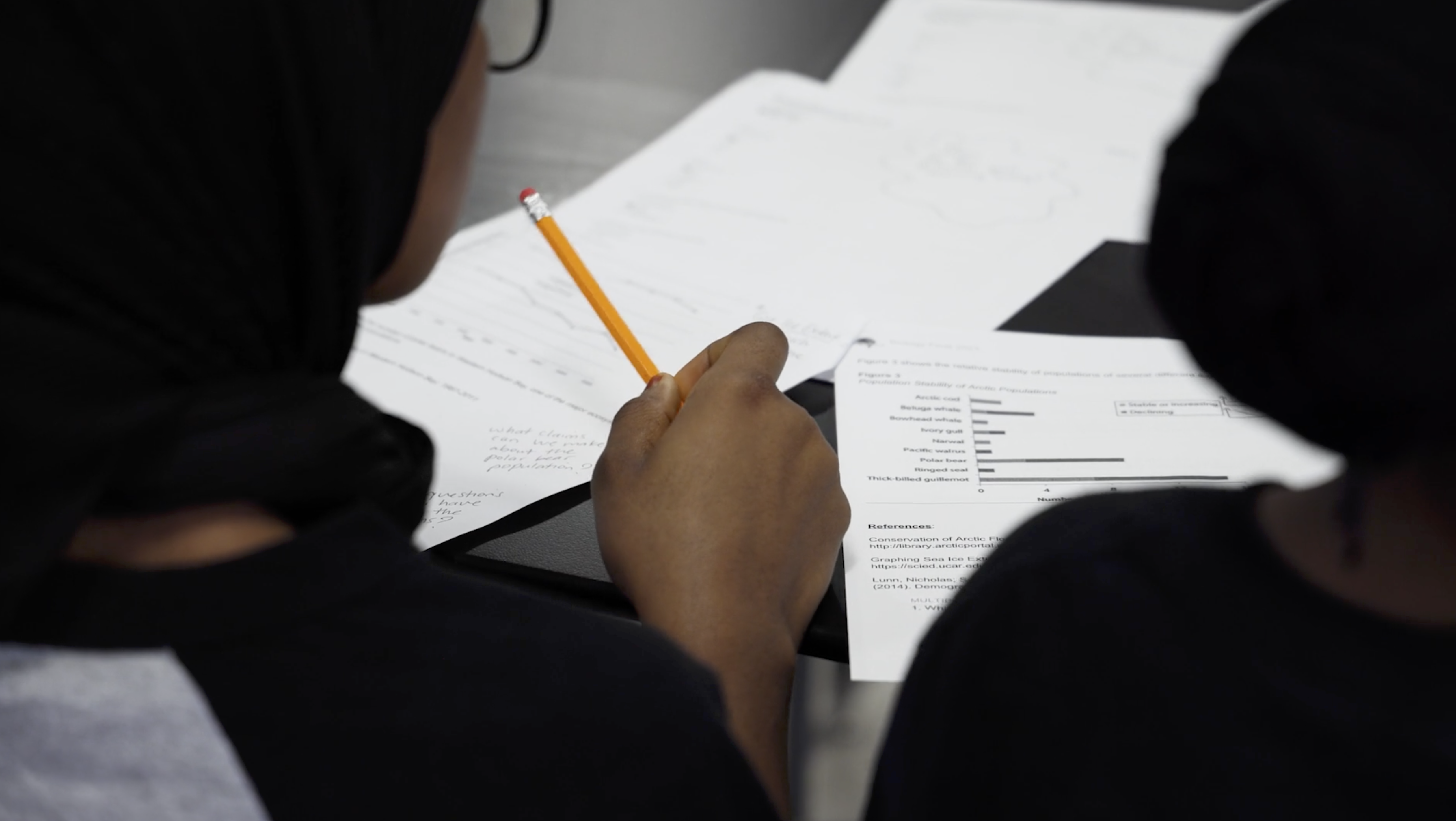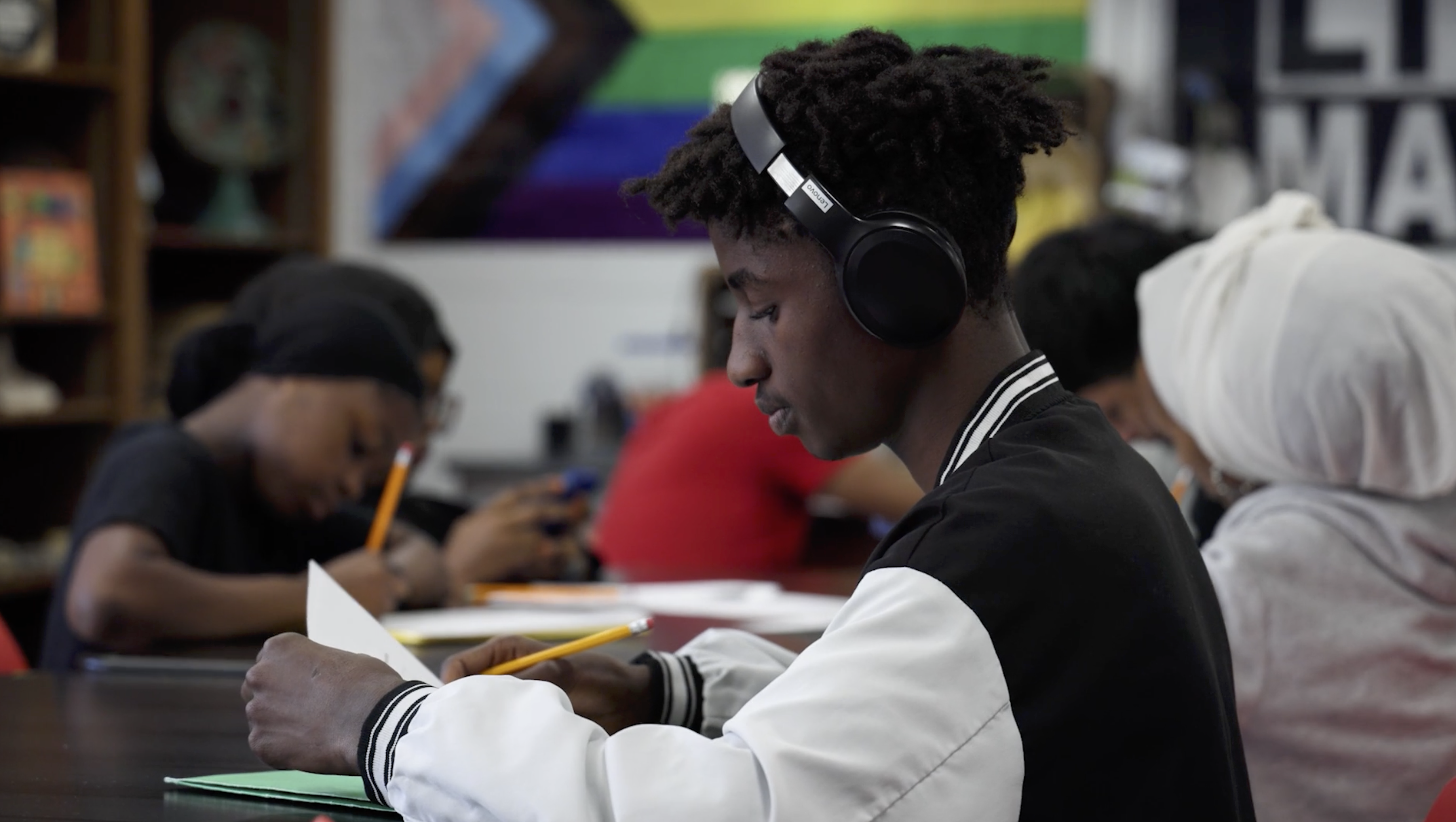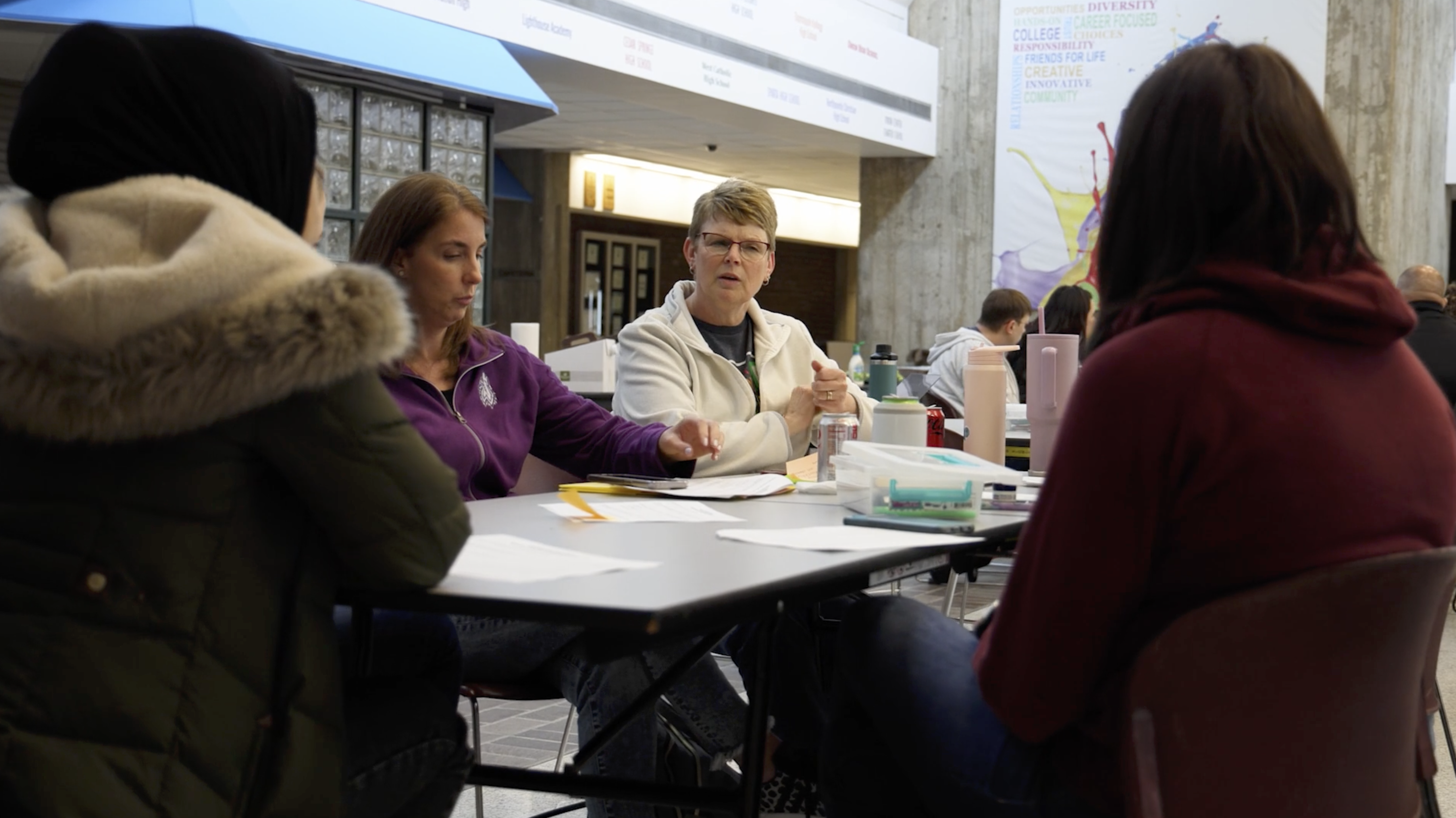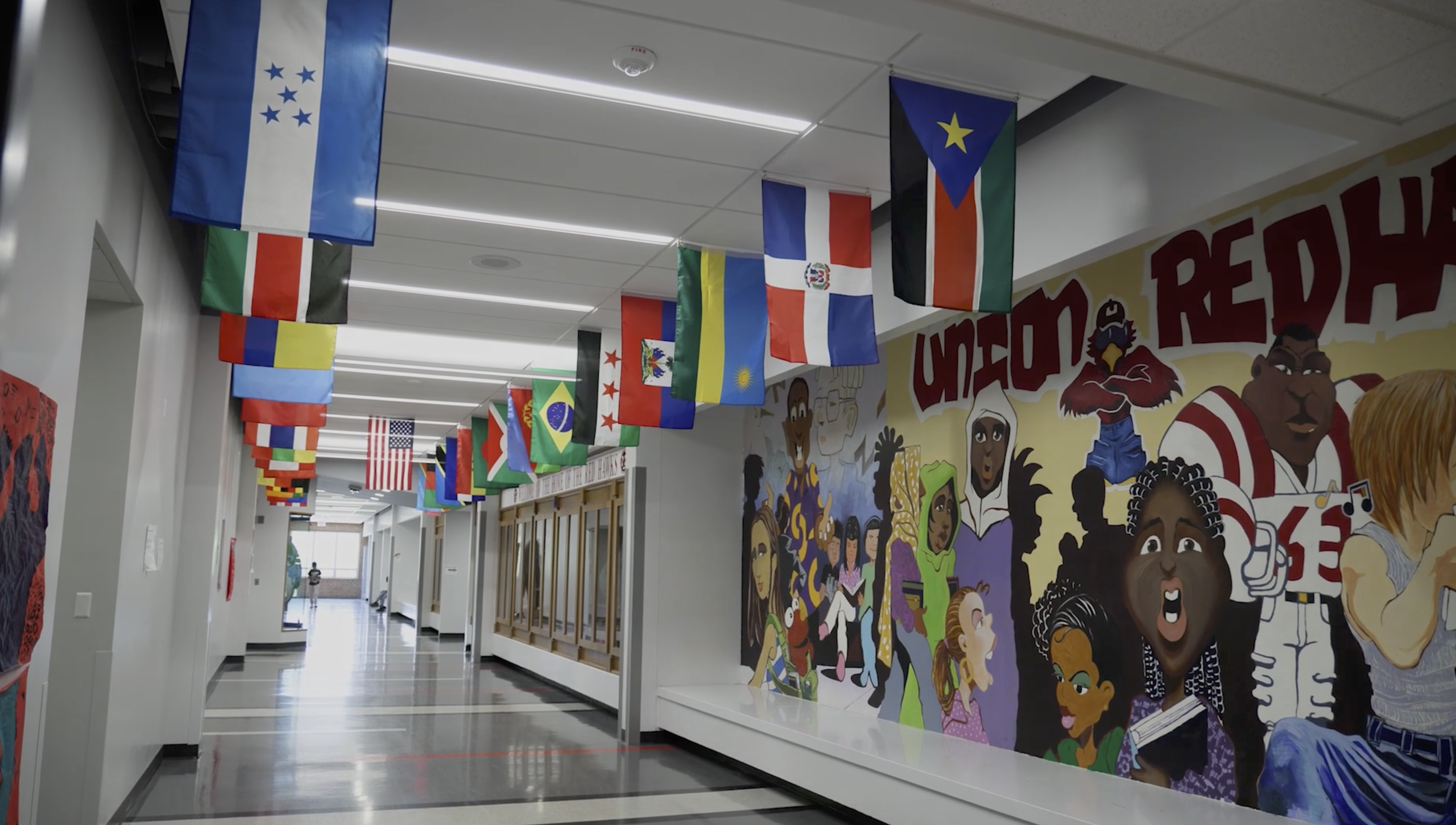In 2022, the Steelcase Foundation partnered with Leading Educators through a three-year $600,000 grant to support its Equity in Literacy Fellowship. Since 2016, Leading Educators has supported Kent County educators through high-quality professional learning aimed at ensuring all students experience excellent and equitable teaching, driving to undo the impacts of historic racism and systemic barriers to a great education. As education is part of an inequitable and often unjust system, Leading Educators centers equity in its interventions and supports for teachers.
For the next three years, the Equity in Literacy Fellowship will engage 50-75 educators annually in best-in class professional learning around strengthening equitable instructional practices to close learning and opportunity gaps for students in our region. Fellows will collaborate in school teams, harnessing their passion for educational opportunity, strengthening instructional practices, and growing as leaders focused on inclusive and excellent schools. By collaborating with educators within their school or district, Fellows can share insights and place-based context to move their classrooms, schools, and districts forward for greater systemic change.
As equity shows up in the details of teaching and learning, Fellows have focused their efforts on addressing inequity in their individual classrooms, developing their lenses and intentions around academic rigor, well-being, inclusion, and culture.
For Claire VanNoord, her focus has been bringing diverse voices into her curriculum through text, seeking to empower students to bring their own diverse experiences into the classroom as well as increasing academic rigor, empowering her students to push themselves to reach their full potential, noting lowering the bar does not help students succeed. Through the fellowship, Claire has changed how she approaches her students noting, “I have a heart for equity, and making sure all of my students feel valued, but this year I’m focusing more on the rigor of my classes to hold students to a high bar, supporting them emotionally and culturally, as well as academically to push them to succeed.” She hopes through her work in the fellowship her school will look deeper into its curriculum to ensure it is rigorous, equitable, and culturally responsive. As she has worked to diversify her curriculum, Claire hopes her students can see themselves more in their learning and gain windows into other cultures and voices they haven’t heard as much. She credits the fellowship in growing her understanding that supporting students social-emotional needs and having high academic rigor go hand in hand and are not mutually exclusive.
For Lee Ross, she has utilized the fellowship as a springboard to explore identity with her students, celebrating who they are and what is important to them while making connections to the perspectives of others through transparent conversations around equity. She hopes students feel comfortable sharing who they are and what’s important to them by providing a space and a platform to consider things.
Ginger Elsenheimer has used the fellowship as an opportunity to explore bring her third graders together, pushing them to read more complex text to increase their comprehension and analysis, vocabulary, and overall knowledge. In addition, she has sought text that showcase characters that look like her students so they can see themselves celebrated in the text.
High school teacher Nicole Durso has used the fellowship to further efforts to honor and uplift her diverse school community, celebrating the languages and cultures of her students. She starts the year getting to know each student individually to understand their interests, their family dynamics and home life, and their prior education and academic and linguistic strengths. She uses this information to uplift the knowledge and gifts students bring to the classroom to make relevant connections to local and global problems to help them dream of and enact solutions.
Jenn Slanger has focused her efforts on creating systems and processes within her district to allow for more equitable opportunities and access for all students. By creating processes and systems within her district, Jenn hopes to share the knowledge from the fellowship across her district to have a lasting impact for all students.
Johanna White has used the quote, “if you’re not paying attention to the literacy rates of black and brown children, then you’re not reaching for equity,” as her north star for the school year, searching for opportunities to help her students see literacy as a tool to help them achieve their goals.
Amber Main and Charon Leal have journeyed together in this work, empowering their second graders to take charge their classroom community, making sure they are places where all students feel welcome. Students have taken ownership of their learning through shifts in instructional delivery and how they practice and apply their learning, helping them to feel more confident and in control of their own learning.
We’re so grateful to the teachers participating in Equity in Literacy Fellowship for their efforts to uplift equity in their work to ensure that all students receive an excellent and equitable educational experience.

